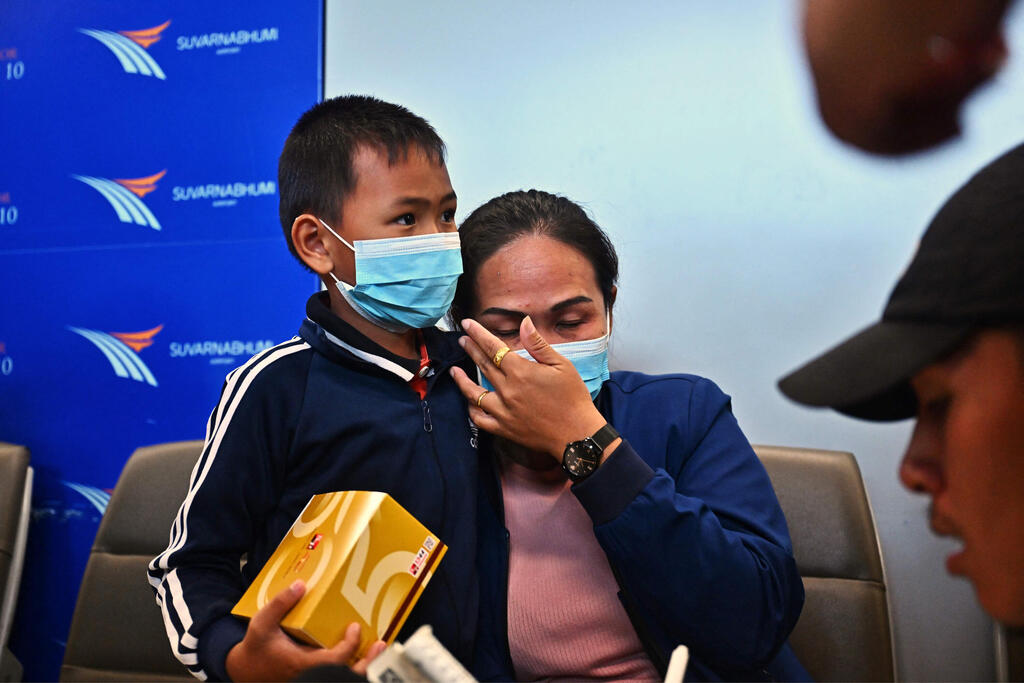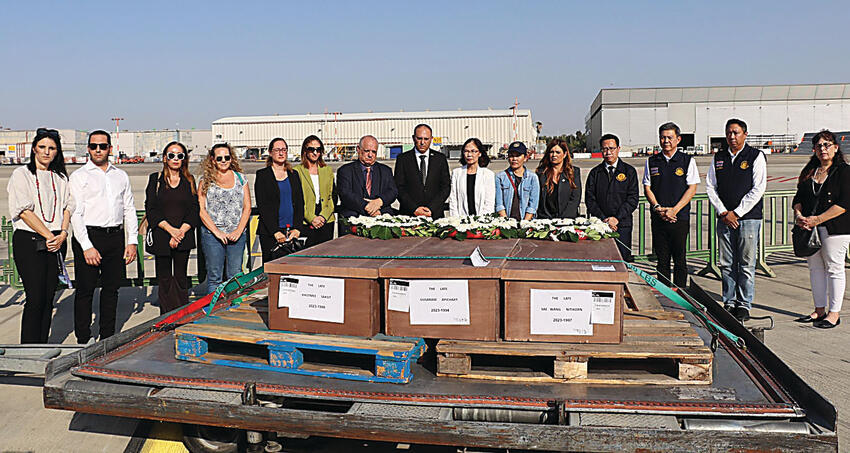Getting your Trinity Audio player ready...
Some 31 Thai nationals were killed in Hamas’ attack on October 7, and not all of the bodies have been identified at this time, according to Thailand’s ambassador to Israel, Pannabha Chandraramya. According to Thai authorities, 20 nationals are still missing, and 15 bodies have been delivered to Thailand.
More stories:
After Israel, Thailand is the country with the most citizens affected by the terrorist attack, mainly because these individuals comprise the dominant foreign workforce in southern Israeli communities near the Gaza border.
Some 10 additional bodies were delivered to Thailand on Tuesday, and five to Nepal. Since the outbreak of the war, 8,000 Thai citizens have requested to leave the country out of the 30,000 workers who were in Israel prior to October 7. So far, 7,260 Thais have left, nearly all of them workers in the agricultural sector in southern Israel. Thai authorities have sent dozens of rescue planes to return the Thai workers, as well as commercial flights and Thai Air Force flights.
The Thai government has called on its citizens to leave Israel but is not forcing them to do so. From its perspective, this is a voluntary decision for each worker, and the pressure for them to leave mainly comes from their families and friends in Thailand.
Inbal Mashash, director of the Population and Immigration Authority’s Foreign Workers Administration, met with a representative from Israel's National Insurance Institute along with representatives from the Thai Labor Ministry. At Thailand’s request, an explanation of the Victims of Hostile Actions Law was provided to them.
In essence, the law states that families of anyone killed or abducted will receive support from the government, just as the family of an Israeli national would receive in a similar situation.
As the days since the outbreak of the war continue to pass, more and more stories of bravery have emerged from southern Israel, like the remarkable story of the 12 Thai workers at Kibbutz Mefalsim, who were working at the kibbutz ranch.
2 View gallery


Families of Thai workers from Israel waiting for them in Bangkok International Airport
(Photo: Lillian SUWANRUMPHA / AFP)
When the terrorists breached the checkpoint near the kibbutz, they headed toward the ranch and encountered the Thai workers who lived nearby. "They told them to get on a wagon at gunpoint. They even shot in their direction but didn't hit them," described Nir Braude, a member of the kibbutz anti-terrorism first response' team.
"They jumped onto a wagon and started moving toward the kibbutz's gate, in order to abduct them into Gaza," he added. Additionally, two or three terrorists there even instructed one of the Thai workers to drive the tractor connected to the wagon.
Braude recounted: "I and the members of the alert squad came and saw them approaching the gate; it was clear they wanted to abduct them. I opened fire, and saw that I hit and killed one of the terrorists. The workers ran away from the tractor, jumped off the wagon, and scattered. The other terrorists also fled, as far as I know. The Thai nationals weren’t hurt, and that's what really matters."
The Thai workers were later moved to another kibbutz. Some of them returned to Thailand, while others stayed in Israel.



